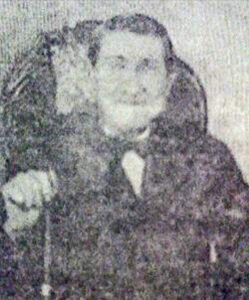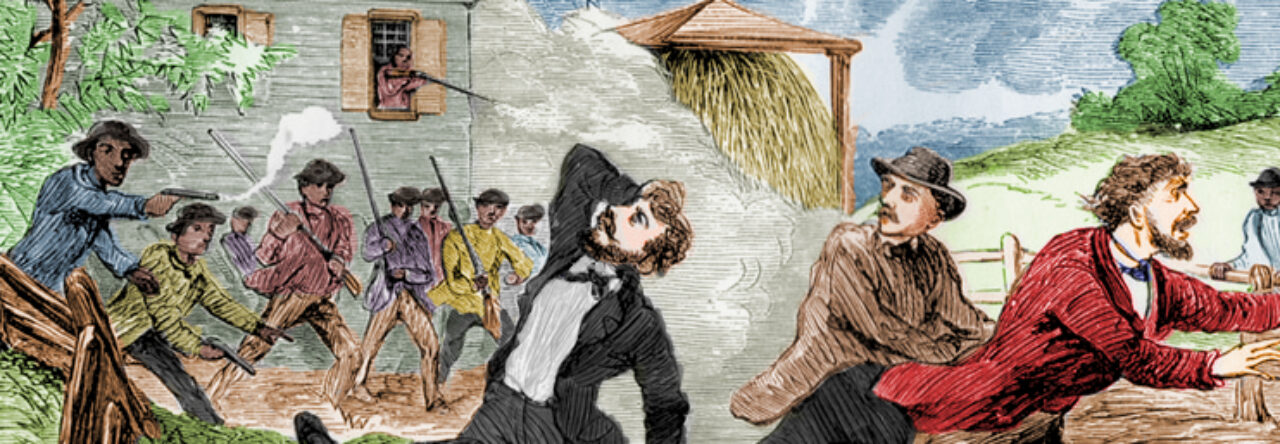Slaveholders notch a rare legal victory against a Pennsylvania abolitionist, but the case proves the exception rather than the rule and does not deter Underground Railroad activists
Date(s): escaped October 1847, final trial in 1852
Location(s): Williamsport, Maryland; Boiling Springs, Cumberland County, Pennsylvania
Outcome: Freedom, $4,000 judgement against abolitionist Daniel Kaufman
Summary:

Daniel Kaufman (House Divided Project)
Fearing they were about to be sold, 13 people enslaved by widow Mary Oliver escaped from Williamsport, Maryland and headed for Pennsylvania on the night of October 9 or 10, 1847. A free Black Underground Railroad operative named George Cole guided the group from Chambersburg to the Boiling Springs farm of white abolitionist Daniel Kaufman, who regularly sheltered freedom seekers. Later that same night, Kaufman and other local Underground Railroad activists transported the freedom seekers by wagon safely beyond the reach of slave catchers. Unable to recapture the freedom seekers, the Olivers went after Kaufman instead. The Olivers pressed charges under section four of the 1793 Fugitive Slave Act, which allowed slaveholders to sue Underground Railroad operatives who harbored freedom seekers for the value of their lost human property. The case began in state courts, where an initial trial found Kaufman guilty and ordered him to pay $2,000 in damages. But Pennsylvania’s Supreme Court argued that the abolitionist could not be tried for breaking federal fugitive slave legislation in state courts and overturned Kaufman’s initial conviction. The case resumed in federal court, where the second trial resulted in a hung jury, only for a third and final trial in 1852 to go the slaveholders’ way. It was the last case tried under the 1793 Fugitive Slave Act (Congress had passed a much tougher Fugitive Slave Act in 1850) and marked a rare but fleeting victory for slaveholders. Slaveholders did not win many penalty cases, and even when they did the punishments were hardly enough to deter Underground Railroad activism. Kaufman was one of the few Underground Railroad operatives ever forced to pay penalties for his clandestine aid to freedom seekers, and even then fellow abolitionists (and his brother-in-law) helped Kaufman foot the final $4,000-plus judgement.
Related Sources
Newspaper reports of Kaufman’s trials, accessible at the House Divided search engine, [WEB]
